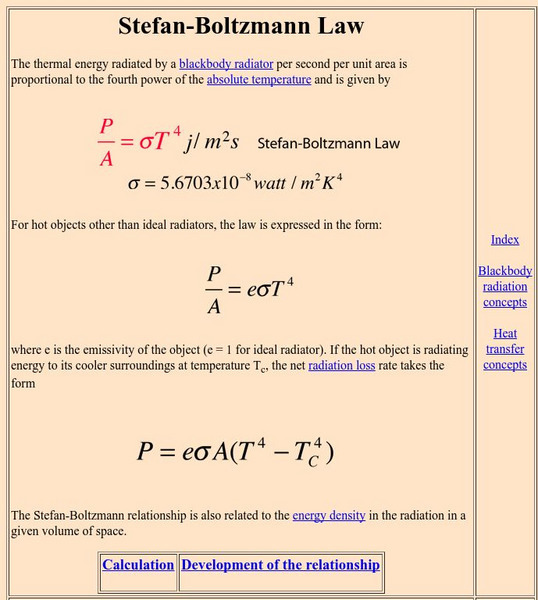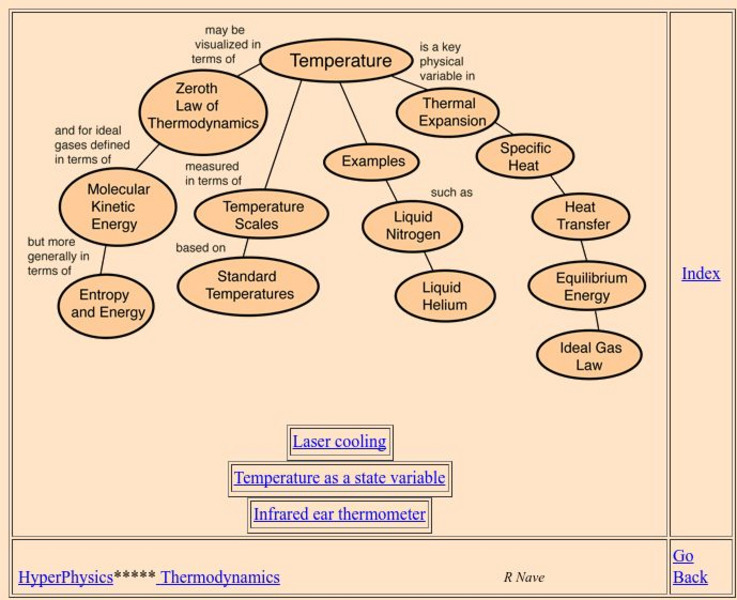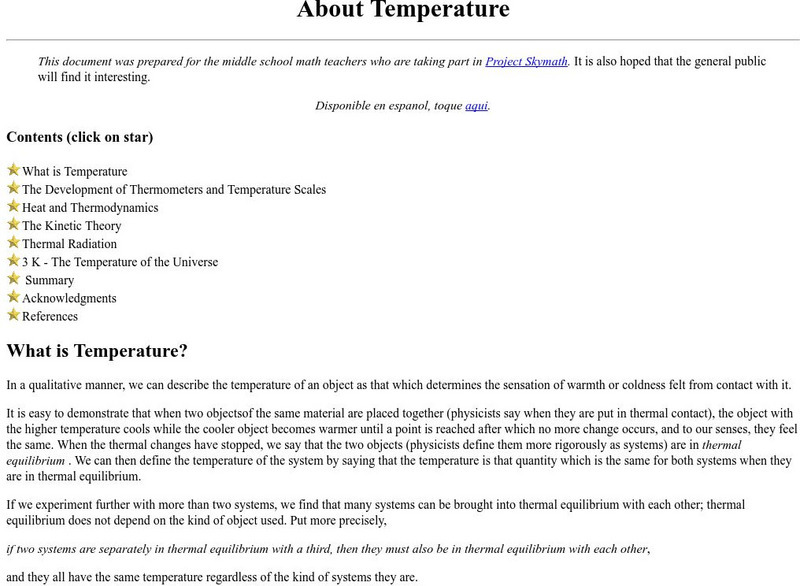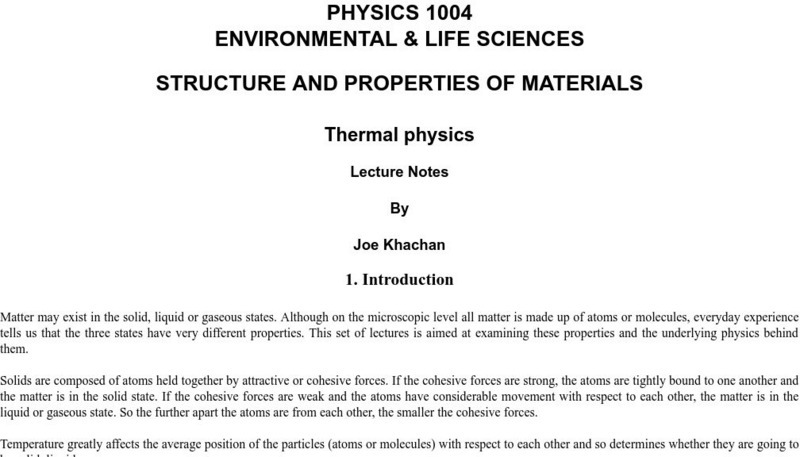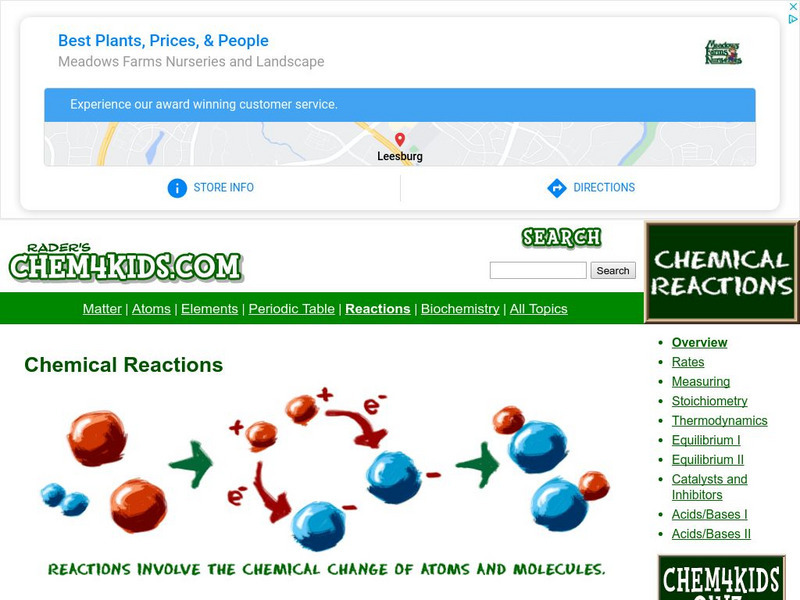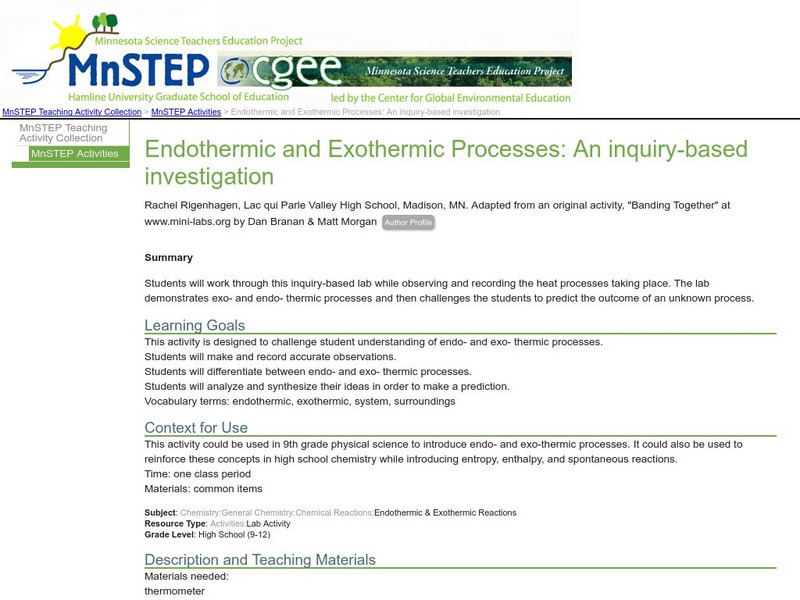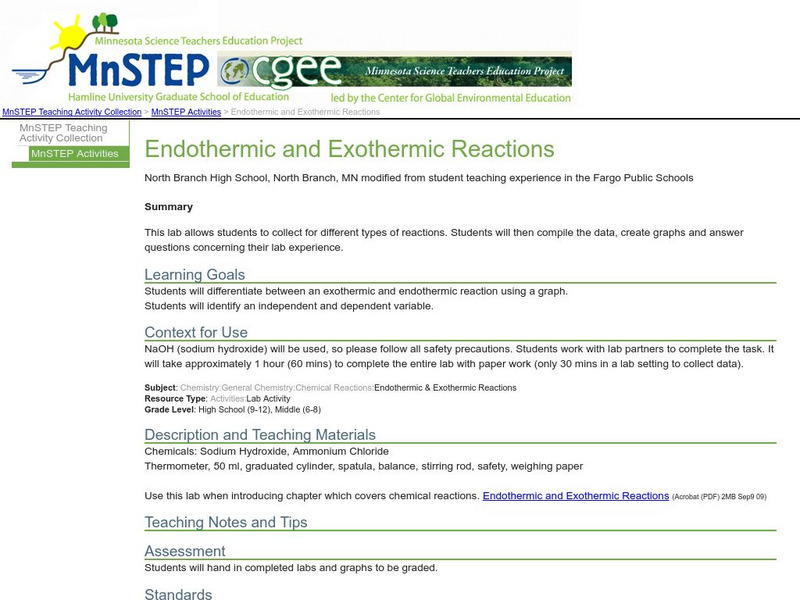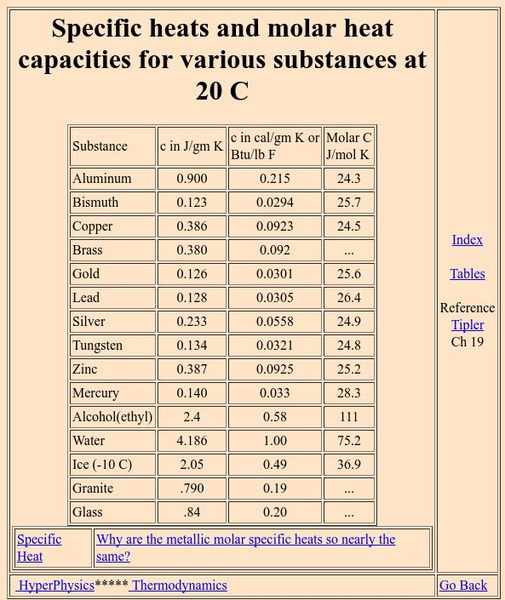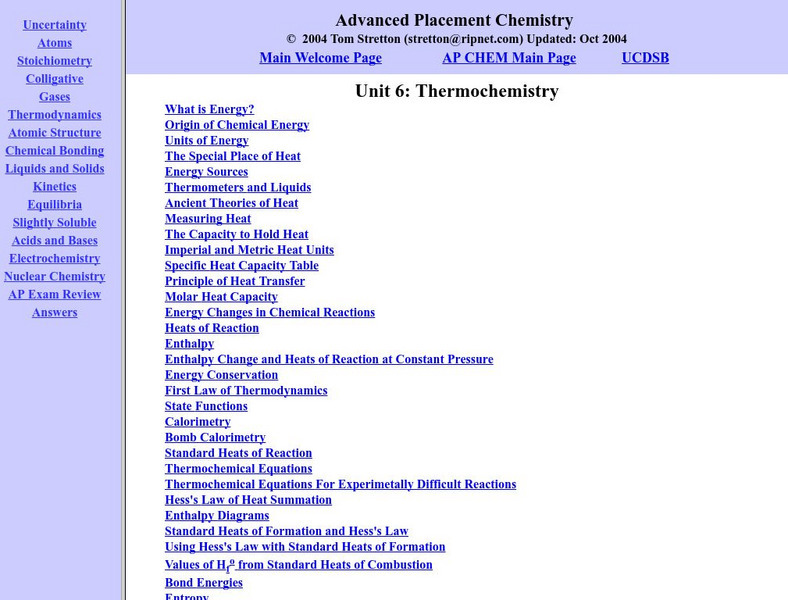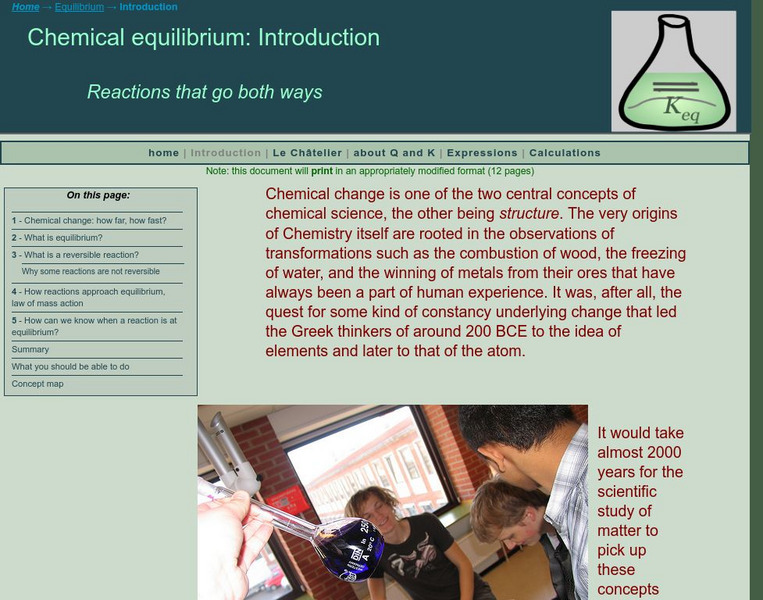Georgia State University
Georgia State University: Hyper Physics: Saturated Vapor Pressure
The meaning of vapor pressure is introduced. The distinction between evaporation and boiling is discussed and explained. The reason that liquids undergo vaporization is explained.
Georgia State University
Georgia State University: Hyper Physics: Radiation Cooling of Body
Discusses the means by which the body regulates its temperature. The role of radiation in this process is explained. An equation for calculating the rate at which energy is transferred by radiation is presented. Also, an interactive...
Georgia State University
Georgia State University: Hyper Physics: Heat Radiation
The process of energy transfer by radiation is discussed. An equation for calculating the rate of radiative energy transfer is provided. Variables in the equation are explained. An interactive form allows for problem-solving practice...
Georgia State University
Georgia State University: Hyper Physics: Temperature Concepts
An indexing page which includes links to a wealth of pages detailing the conceptual meaning of temperature. A hypertext format allows the visitor to quickly gain access the desired information.
University Corporation for Atmospheric Research
Ucar: About Temperature
This site from the University Corporation of Atmospheric Research provides a lengthy page covering numerous topics including the difference between heat and temperature, the use of different temperature scales, thermal expansion, how a...
University of Sydney (Australia)
University of Sydney: Structure and Properties of Materials/thermal Physics
An exhaustive set of "lecture notes" on various topics in thermal physics (including thermal expansion). Explanations are well done and more interesting than most. Includes both a mathematical and conceptual treatment of topics. Humor,...
Chem4kids
Chem4 Kids: Reactions
This site provides a detailed overview of chemical reactions. Content explores what a reaction is, as well as different types of reactions, reaction rates, how to measure compounds to create a reaction, and "stuff" you can add to a...
Science Education Resource Center at Carleton College
Serc: Endothermic and Exothermic Processes: An Inquiry Based Investigation
Students work through this inquiry-based lab while observing and recording the heat processes taking place. The lab demonstrates exothermic and endothermic processes, and then challenges the students to predict the outcome of an unknown...
Science Education Resource Center at Carleton College
Serc: Endothermic and Exothermic Reactions
This lab allows learners to collect data for different types of reactions: endothermic and exothermic. Students compile the data, create graphs and answer questions concerning their lab experience.
Crescent Public Schools
The Internet Science Room: Enthalpy and Heat
Students learn about thermodynamics and enthalpy through practice problems and examples in this chemistry lesson.
Sophia Learning
Sophia: Bill Nye Demonstration: Radiometer
Learn about the radiometer as Bill Nye demonstrates how it works. [1:01]
Sophia Learning
Sophia: Bill Nye Demonstration: Dunking Bird
Take a look at this video from Bill Nye the Science Guy as he demonstrates the science behind the Dunking Bird. [1:34]
Georgia State University
Georgia State University: Hyper Physics: Specific Heats and Molar Heat Capacities
A lengthy listing of values for specific heats and molar heat capacities for a variety of substances at 20 C. An explanation is given for why molar heat capacities for metals are nearly the same.
Walter Fendt
Walter Fendt: Apps Zur Physik
This site, in German, offers numerous apps that illustrate common physics principles. Apps are organized into categories: mechanics, oscillations and waves, electrodynamics, optics, thermodynamics, the theory of relativity, physics of...
Other
Cosmic Ancestry/the Second Law of Thermodynamics
The differences between thermodynamic entropy and logical entropy are explained, especially how they relate to the second law of thermodynamics. Entropy in biology is also discussed.
Science Struck
Science Struck: Examples of Thermal Energy
Describes examples of thermal energy in the natural world from the Sun, the oceans, and the Earth.
Science Struck
Science Struck: Conduction, Convection, and Radiation
Explains the concept of heat transfer and describes conduction, convection, and radiation which are the three modes of heat transfer. Includes formulas, examples, and applications.
Texas Education Agency
Texas Gateway: Thermodynamics: Glossary
This is a glossary of terms and definitions used in Chapter 15: Thermodynamics from the AP Physics online text.
Upper Canada District School Board
Tom Stretton's Advanced Placement Chemistry: Thermochemistry
This chemistry e-textbook provides students with AP-level reading and practice material on thermochemistry.
Royal Society of Chemistry
Royal Society of Chemistry: Resources for Teachers
Search from over two thousand chemistry resources for teachers. Options allow user to refine search to pinpoint the exact resource needed. Includes presentations, videos, worksheets, quizzes, experiments, games, tutorials, and more.
CK-12 Foundation
Ck 12: Calorimetry
[Free Registration/Login may be required to access all resource tools.] Using diagrams and practice problems, students learn how the units of calories are used to measure the energy of the heat transfer. They also discover how...
Simon Fraser University
Chem1 Virtual Textbook: Reversible Reaction
Acting as an overview from the General Chemistry Virtual Textbook, this site seeks to answer the question, what is a reversible reaction? Acting as part of a larger informative site on equilibrium, various topics are addressed including...
Khan Academy
Khan Academy: Thermodynamics Questions
This is a 10-question quiz pertaining to thermodynamics.
Khan Academy
Khan Academy: What Are Pv Diagrams?
Learn what PV diagrams are and how to use them to find the change in internal energy, work done, and heat.




